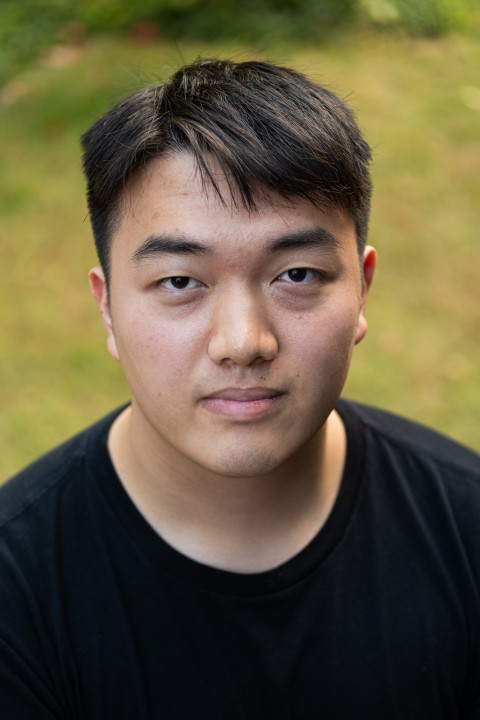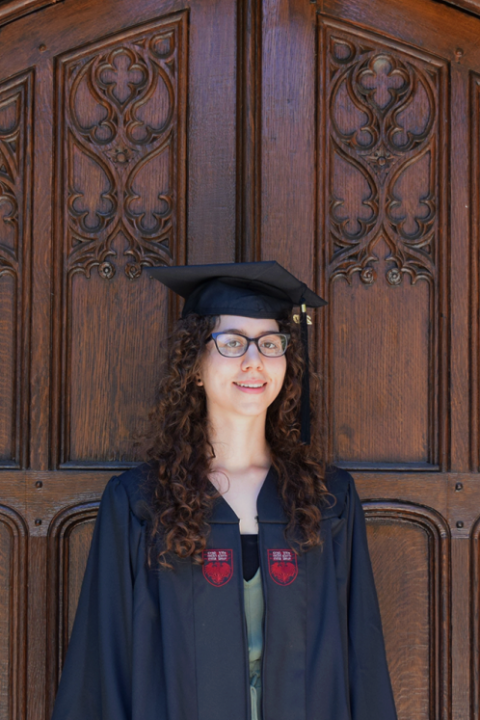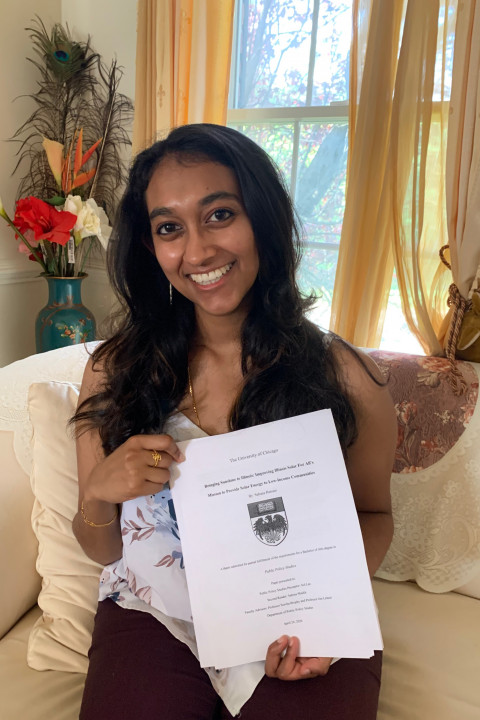As the Class of 2020 wrapped up their time on campus, many students put the finishing touches on their senior theses and projects. From the sciences to the arts, students worked hard to encapsulate their expertise, interests and insights from their respective fields of studies in one capstone project. Three students shared the end results of their projects, and the journey to their completion:
Kenjiro Lee, theatre and performance studies, “Untitled”
“Representation and diversity have almost become buzzwords in the theater world,” said Kenjiro Lee, a political science major and theater and performance studies (TAPS) minor.

Lee focused his TAPS thesis project on presenting the material from an ongoing project about the current state of representation for people of color in theater. In his project, Lee explores the meaning of diversity in the theater industry, asking how the theater world can include people of color beyond just having them in the room.
Wanting to go beyond superficial diversity, Lee asks rhetorically: “What’s next? What do they have to say? What do your peers think about the state of theater beyond just getting their feet in the door?”
“There actually needs to be conversations about what people of color need in the theater world, how institutions have failed us in various ways, and even why we’re asking for this in the first place. I hope ‘Untitled’ presents for its audience a start to those conversations.”
Lee explored these ideas through a unique form: documentary theater, which is a theatrical performance of documentary material. “Untitled” draws from recorded conversations conducted with several theater artists of color, presenting audio excerpted from and monologues adapted from these interviews.
“Documentary theater is something of an oddity: what is the purpose of turning real conversations or interviews into performed material?” he said. “Documentary theater has the ability to bring the people who are interviewed into a completely different location, sharing their words and thoughts in a way just playing a recorded audio or video can’t.”
His inspiration for the idea comes from a class he took on playwrights of color. Anna Deavere Smith’s play Twilight: Los Angeles, 1992 inspired him because of “its use of real interviews to provide an all-encompassing view on the LA riots.”
Although the project was supposed to be a live presentation, Lee said that having to adapt to Zoom is what theater is all about. “While we didn’t have a live audience, and the chances of our works seeing a live audience in the near future are slim, the events of the past few months have given our projects something fundamentally ‘live.’ Theater is always about adapting your work to the circumstances or setting, and the fact we were able to do this at all, be it via Zoom or a recorded video, is a testament to that idea.”
Sophia Vann-Adibé, neuroscience, “Investigation of Sex Differences in Hippocampal CA1 Place Field Dynamics”
When Sophia Vann-Adibé started asking questions about why most biological and neuroscience research is conducted on male subjects, she found that there was an unwritten assumption that female subjects would be more variable than male subjects. She decided to challenge that assumption by focusing her thesis on sex differences in the hippocampus of the brain.

By analyzing the differences between the hippocampus of female and male mice, Vann-Adibé discovered that there were differences between female and male mice in some of their respective brain cell activity. She emphasized the importance of the outcomes of this research: “If my results showed that females were similarly variable to males, they could be included in our lab’s research. This would help increase the efficiency of this kind of research, as the number of possible subjects would double, making the timeline of genetic experiments shorter.”
She also found the topic important in the bigger picture; by understanding how cellular aspects of the brain function, she says that neuroscientists can better understand the conscious experience.
“Although the cellular aspects may seem removed from our daily lives, putting the research into the macro-context helps me to stay focused on the goal of much of neuroscience research, which is to better understand aspects of our conscious experience.”
She underlined the importance of this type of research as well. “Research on sex differences must be done carefully so as not to prolong stereotypes, but that is not to say that it shouldn’t be done. Quite the opposite actually; recent research has brought to fore how the lack of research and clinical trials that include women has negatively impacted women’s health. Through writing my thesis, I feel like I have practiced the ability to discuss a sensitive issue such as sex differences in the context of neuroscience research.”
Sahana Ramani, economics and public policy, “Bringing Sunshine to Illinois: Improving Illinois Solar For All’s Mission to Provide Solar Energy to Low-Income Communities”
For her thesis, Sahana Ramani examined Illinois Solar for All, a bipartisan effort to address environmental justice in Illinois and provide solar power to low-income communities. While researching the topic, she found that the program often faced difficulty in successfully completing its project. Ramani endeavoured to investigate those challenges and ask: why?

In researching the program, she primarily conducted interviews with people familiar with Illinois Solar for All and created a geospatial analysis investigating the program’s accessibility in communities of colors. In the process, Ramani concluded that the initiative’s requirements were too stringent for tangible benefits to be realized across the state.
Ramani provided recommendations to the program regarding its communication goals: “I call for more transparent communication between grassroots organizations and utility vendors in the program.”
She enjoyed being able to speak with so many different people while researching her thesis. “It allowed me to connect with individuals across the state and hear their stories,” Ramani said. “I spoke to CEOs of non-profit companies, founders of solar panel vendor companies, and school county administrators who all had a part in the program.”
She also felt that their enthusiasm to better their communities was inspiring. “It was amazing to see how much passion everyone had to make this program a true success across the state, shedding light on environmental justice.”
Read about more undergraduate thesis projects on our Facebook page.